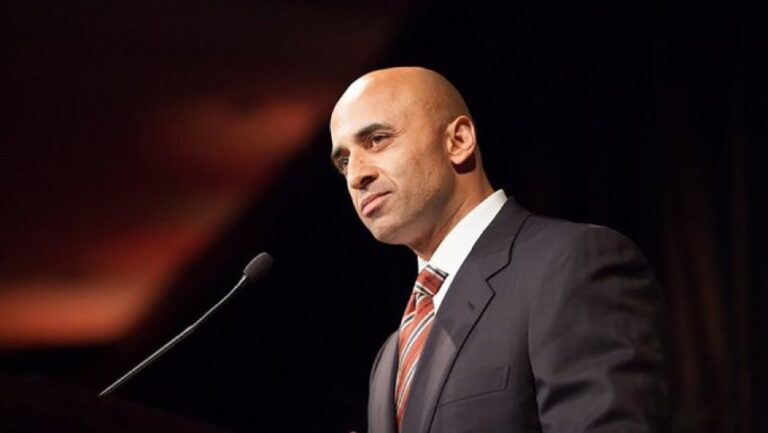 British voters will decide in one month whether or not to deal a historic hammer blow to European integration by putting their island nation on an independent path outside the European Union.
British voters will decide in one month whether or not to deal a historic hammer blow to European integration by putting their island nation on an independent path outside the European Union.
The choice on June 23 is simple: In or Out. But the ramifications of a vote to leave are complex and uncertain.
The campaign has hardly been a model of cool, reasoned argument. “Leave” campaigner and former London Mayor Boris Johnson has compared the EU’s goals to those of Adolf Hitler, while “Stay”-supporting Prime Minister David Cameron has suggested that a decision to leave the 28-nation bloc would please Islamic State extremists.
EU advocates argue that leaving the bloc would batter Britain’s economy, costing each household thousands, while the “Leave” side says Britain has blithely forfeited the independence it once fought so fiercely to defend — and can reclaim it only by walking away from the EU and its byzantine rules.
British security chiefs have weighed in (most want to stay) along with business leaders (stay, for the most part) and 300 well-known figures from the arts (stay, stay, stay). World leaders have chimed in, including President Barack Obama (stay) and Canadian Prime Minister Justin Trudeau, who argues Britain would be foolhardy to turn its back on its EU trading partners.
The prospect of a British exit — a Brexit — hangs over the future of the EU, which is already reeling from a prolonged refugee crisis, a series of lethal attacks, and a financial meltdown that has threatened the future of the euro single currency that is used by 19 member states, though not Britain.
Anand Menon, director of the U.K. in a Changing Europe research group, said the Brexit campaigning has been deeply personal, with voters choosing sides based on their belief in the politicians involved.
“My takeaway is that the messenger is as important as the message,” he said. “People don’t believe some people and do believe others … it depends who you think is believable.”
He said both sides have distorted the facts, with the “Leave” campaign a bit more prone to hyperbole.
The campaign will move to television in the coming weeks, with combative town hall meetings and debates that will include Cameron and right-wing U.K. Independence Party leader Nigel Farage of the “Leave” side.
The implications of the vote are profound. Some experts believe a decision to leave could jeopardize the future of the EU itself by removing a key member, and also set in motion the possible disintegration of the United Kingdom, because Scottish voters loyal to the EU might choose to break away from Britain via a new referendum.
If Britain opts out, it would be the first major country to walk away from the EU, possibly setting a precedent for other disgruntled members.
The “stronger in Europe” campaign argues that the benefits of membership — including easy trade ties, the free flow of goods and people, and the ability to live and work in other European countries — outweigh the cost of dealing with the sometimes-stifling Brussels bureaucracy.
The “let’s go it alone” crowd led by Johnson and Farage make a more emotional appeal, arguing that only by leaving and controlling Britain’s borders can the country protect itself from unchecked immigration. They say Britain has given away its sovereignty, bit by bit over the decades, as European courts have established primacy over British law.
The referendum has its roots in a seemingly eternal Conservative Party squabble over Britain’s role in Europe and at times it has seemed more a battle for Conservative Party leadership between Cameron and Johnson, long seen as a possible successor.
Johnson, the former London mayor and a onetime Cameron ally, is gambling on a referendum win to burnish his credentials for 10 Downing Street.
While Cameron’s Conservatives have been split by the in/out referendum that Cameron himself proposed, the opposition Labour Party and the powerful Scottish National Party strongly favor staying in the bloc.
Britain joined the European Economic Community, the predecessor of the EU, in 1973. It has grown into far more than an economic bloc with the establishment of a European Parliament, a European Court of Justice, and the powerful European Commission.
A severing of EU ties would shelve a whole series of trade arrangements that make it easy to do business across European borders, impacting the global banks, trading houses and insurance companies that have made London a financial powerhouse.
It is not clear what kind of relationship a post-Brexit Britain would seek with EU countries, nor is it known how willing spurned EU members would be to quickly re-establish favorable trade ties to Britain. Already, Britain’s currency and its housing market have suffered because of referendum uncertainty.
A decision to leave would also have a profound effect on the lives of younger Europeans, who have flocked to London and other British cities where jobs are relatively plentiful compared to the capitals of Spain, Italy, Greece and the EU’s eastern European members.
As the campaign moves into its final weeks, the rhetoric shows no sign of cooling, with each side accusing the other of drumming up fear.
Pro-Brexit Armed Forces Minister Penny Mordaunt said Sunday that a “remain” vote would swing Britain’s gates wide open, allowing “people from Albania, Macedonia, Montenegro, Serbia and Turkey to move here freely when they join the EU soon.”
“Remain” campaigners say Turkey is nowhere near joining the EU — and Britain would have a veto in any case.
Cameron said Sunday that the real risk is to Britons’ pocketbooks, since leaving the bloc will mean higher prices and economic instability,
“You really have to ask yourself, is it worth taking this risk?” he said.
(AP)










